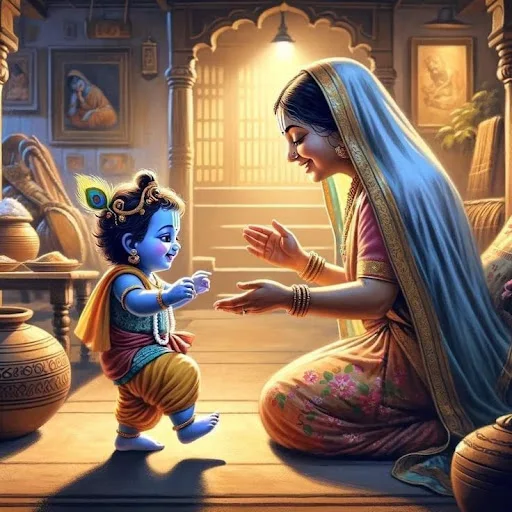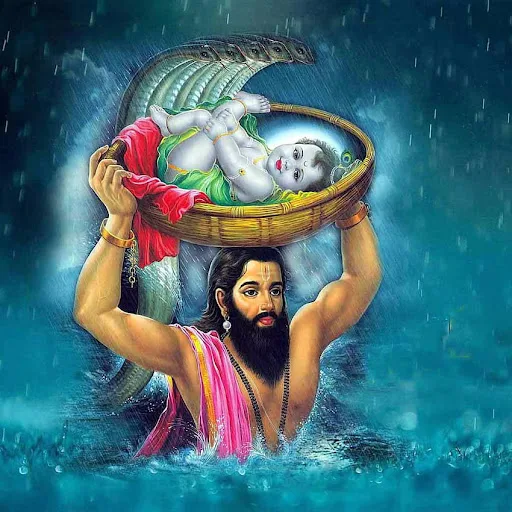Janmashtami, one of the most revered and widely celebrated festivals in Hinduism, marks the birth of Lord Krishna, the eighth avatar of Lord Vishnu. The festival is observed with immense devotion, enthusiasm, and cultural vibrancy across India and in various parts of the world. Janmashtami 2024 promises to be a grand celebration, filled with rituals, festivities, and a deep sense of spiritual reverence. In this blog, we will explore the significance of Janmashtami, its rituals, celebrations, and the spiritual teachings of Lord Krishna.
The Significance of Janmashtami
Janmashtami, also known as Krishna Janmashtami, falls on the eighth day (Ashtami) of the Krishna Paksha (dark fortnight) in the month of Bhadrapada according to the Hindu lunar calendar. This day is believed to be the divine moment when Lord Krishna, the supreme deity, incarnated on Earth over 5,000 years ago in the Dwapara Yuga. His birth is considered a pivotal event in Hindu mythology, symbolizing the triumph of good over evil, the restoration of dharma (righteousness), and the establishment of divine love and wisdom.
Lord Krishna’s life and teachings, as depicted in texts like the Bhagavad Gita and the Mahabharata, continue to inspire millions. His birth on Janmashtami is celebrated as a reminder of his divine mission to protect the virtuous, annihilate evil, and re-establish the principles of dharma.
Rituals and Traditions of Janmashtami
Janmashtami is observed with various rituals and customs that reflect the rich cultural heritage of Hinduism. Devotees engage in fasting, singing devotional songs, and participating in religious ceremonies at temples and homes. The day typically begins with a morning puja, where devotees offer flowers, fruits, sweets, and other items to the deity.
One of the most important rituals is the midnight celebration, marking the exact moment of Krishna’s birth. Devotees gather in temples to chant prayers and sing bhajans, while idols of baby Krishna are bathed in milk, curd, honey, and ghee in a ritual known as ‘Abhishekam.’ The idol is then placed in a cradle, symbolizing the arrival of the divine child.
Another popular tradition is the reenactment of Krishna’s childhood antics through the ‘Dahi Handi’ ceremony, where a pot filled with curd, butter, and milk is hung high, and teams of young men form human pyramids to break it, reminiscent of Krishna’s love for butter as a child.
Regional Variations in Janmashtami Celebrations
Janmashtami is celebrated with unique customs and traditions across different regions of India, each adding its own cultural flavor to the festival. In Mathura and Vrindavan, the birthplace and childhood home of Krishna, the celebrations are especially grand. The towns are adorned with lights, flowers, and colorful decorations, while devotees participate in processions, temple rituals, and dramatic reenactments of Krishna’s life, known as ‘Raslila.’
In Maharashtra, the ‘Dahi Handi’ event is a major highlight, attracting large crowds and participants who compete to break the pot. The spirit of competition, combined with the joy of the festival, creates an atmosphere of excitement and unity.
In Gujarat, the festival is marked by ‘Bhajan Mandalis,’ where groups of devotees sing devotional songs and perform traditional dances. In the southern states, especially in Tamil Nadu and Karnataka, the day is observed with recitals of the Bhagavad Gita and the Vishnu Sahasranama, as well as special temple rituals.
Spiritual Teachings of Lord Krishna
The teachings of Lord Krishna, as conveyed through the Bhagavad Gita, are considered one of the most profound spiritual philosophies in Hinduism. On Janmashtami, devotees reflect on these teachings, which emphasize the importance of dharma, devotion, and selfless action.
Krishna’s message of ‘Karma Yoga’ – performing one’s duties without attachment to the results – is a cornerstone of his teachings. He also advocates for ‘Bhakti Yoga,’ the path of devotion, where surrendering to the divine and seeking his grace is seen as the highest form of worship.
Krishna’s life itself is a testament to the power of divine love, wisdom, and the need to rise above material desires. His playful yet profound interactions with his devotees, especially the Gopis of Vrindavan, symbolize the purest form of love, free from selfishness and ego.
Janmashtami and Modern Celebrations
In the modern era, Janmashtami continues to be celebrated with enthusiasm, but with the advent of technology and globalization, the festivities have taken on new forms. Social media platforms are flooded with messages, prayers, and images related to the festival. Virtual celebrations have also become popular, especially in the wake of the pandemic, allowing devotees from across the world to participate in the rituals and celebrations.
In many cities, cultural organizations host events like Krishna-themed plays, dance performances, and musical concerts, showcasing the rich cultural heritage associated with the deity. Temples also use technology to live stream pujas and other ceremonies, making it possible for devotees to partake in the celebrations from the comfort of their homes.
Fasting and Feasting on Janmashtami
Fasting is an integral part of Janmashtami celebrations, observed by many devotees as an act of devotion and purification. Some observe a full fast, abstaining from food and water until midnight, while others follow a partial fast, consuming only fruits, milk, and simple meals.
The fast is broken after the midnight puja, and devotees then indulge in a variety of traditional delicacies prepared especially for the occasion. These include sweets like ‘Panakam,’ ‘Peda,’ ‘Gopalkala,’ and ‘Makhan Mishri,’ symbolizing Krishna’s love for dairy products.
In addition to these, many households prepare elaborate feasts, offering a wide range of vegetarian dishes to the deity before sharing the prasad with family and friends. The act of cooking and sharing food is seen as a form of devotion, fostering a sense of community and togetherness.
Janmashtami 2024: A Time for Reflection and Devotion
As we prepare to celebrate Janmashtami in 2024, it is an opportune moment to reflect on the spiritual and moral teachings of Lord Krishna. His life and message continue to inspire and guide us in our personal and spiritual journeys. In a world often marked by chaos and uncertainty, Krishna’s teachings remind us of the importance of faith, righteousness, and love.
Whether you participate in the grand festivities or choose a quieter, more personal form of worship, Janmashtami offers a chance to reconnect with the divine and seek the blessings of Lord Krishna. May this Janmashtami bring joy, peace, and spiritual fulfillment to all who celebrate it.












